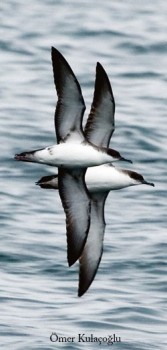An international workshop on Marine Important Bird Areas in Malta and the Mediterranean will be held over 23 – 25 November 2015 organized by the LIFE+ Malta Seabird Project and BirdLife International in the Hotel Ta’ Cenc, Gozo, Malta. The workshop is described as being “a key opportunity to gather knowledge and experience on protecting seabirds across national boundaries and international waters of the Mediterranean as well as set the way forward for international collaborations in protecting our common seabird heritage.”
“Within the Mediterranean seabirds face threats both on land and at sea, such as overfishing, by-catch, invasive predators, habitat destruction from poor planning and marine pollution. However only 4% of the Mediterranean is currently protected through the EU Natura 2000 network in Europe and the Barcelona Convention’s Specially Protected Areas of Mediterranean Importance. At a regional scale there are still many important gaps to fill in the protected area network for seabirds, particularly for sites at sea. The meeting will enable scientists, nature conservationists and policy makers to further coordinate efforts for seabird protection at a regional scale through capacity building and the sharing of specialist knowledge.
The meeting will start with the presentation of a draft inventory of Marine Important Bird Areas for seabirds in Maltese and international waters identified under the LIFE+ Malta Seabird Project. This will be followed by sessions on knowledge sharing and gap analysis for the entire Mediterranean region, identifying sites within and beyond national jurisdiction, priority areas and policy mechanisms from across the Mediterranean.”
Click here to read more about the workshop, including the meeting agenda and registration details.

Yelkouan Shearwaters at sea
Malta supports breeding populations of both Yelkouan Puffinus yelkouan and Scopoli’s Calonectris diomedea Shearwaters. The ACAP-listed Balearic Shearwater P. mauretanicus also breeds within the Mediterranean.
John Cooper, ACAP Information Officer, 23 August 2015

 English
English  Français
Français  Español
Español